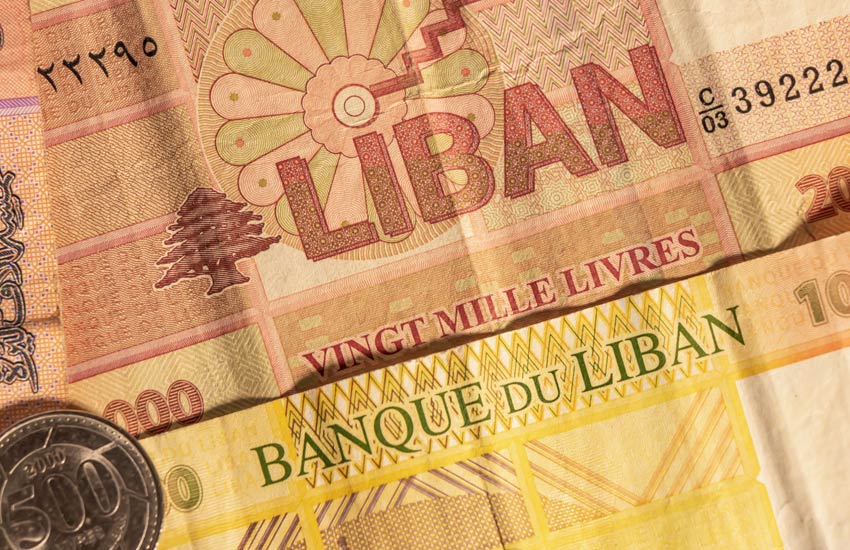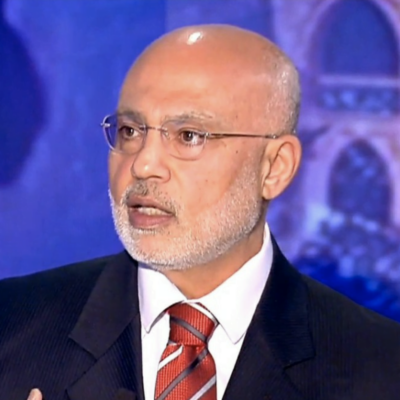
The feasibility and desirability of central banks issuing their fiat versions of digital currencies have been the focus of a growing debate in recent years. Many, including Lebanon’s Central Bank Governor, Riad Salameh, proposed the introduction of Central Bank Digital Currencies (CBDC) to restore order and confidence in the country. Wishful thinking or a smart move?
By Mohammad Ibrahim Fheili
BDL is preparing a national digital currency as part of a "regulatory mechanism" to restore confidence in Lebanon's troubled banking sector and help to transform it into a "cashless system" that enables more seamless cash movement.
The Governor is not in touch with reality to have gone that far in his promise. Confidence in Lebanon’s crippled banking sector is lost for several reasons, and the type of currency in circulation is not one of them.
As a result of Central Bank policies, the banking sector has chartered the path to a total collapse and has reached a point where it’s been rendered (not by choice) helpless and hopeless. If this statement is one of the Governor’s wild dreams, I promise him a rude awakening destined to fail.
Many local market observers have tossed around the CBDC in a manner that missed the point. Lebanon is not ready to welcome that digital currency!
Unlike decentralised cryptocurrency like Bitcoin, a CBDC uses digital tokens and blockchain technology to represent a country's official currency, is centralised and regulated by the country's monetary authority, and should be a risk-free alternative to a bank deposit and to holding paper money (banknotes).
The CBDC system will be an economic environment parallel to the one based on fiat currency. However, unlike traditional fiat currency systems, the CBDC system will be based on an asset class outside the conventional banking system. Thus, any conversion of existing non-cash assets into the CBDC will cause an outflow of financial help from the existing banking system.
One potential impact of digital currencies is that they could reduce the demand for bank deposits. Individuals and businesses may hold their funds in digital currency/wallets issued by the central bank. This could lead to a decrease in the amount of bank money in circulation.
Additionally, digital currencies could reduce the role of commercial banks in the payments system, as individuals and businesses may be able to make transactions directly with the central bank. This could impact the profitability of commercial banks, particularly if they cannot adapt their business models to the changing landscape.
However, it is essential to note that the impact on bank money would depend on the digital currency's design and the central bank's policies. Another critical factor is how the Central Bank will deal with commercial banks.
It is difficult to draw definitive or quantitatively-robust conclusions about the impact of CBDC on the monetary transmission mechanism due to the significant uncertainty around the ultimate design of CBDC, the economic environment it will be introduced, and the structural changes that may accompany it.
The introduction of CBDCs could disrupt the traditional banking system and limit the effectiveness of monetary policies that rely on commercial banks as intermediaries.
Overall, the impact of CBDCs on the effectiveness of monetary policies will depend on various factors, including the design and implementation of the CBDC, the policies of the central bank, and the behaviour of individuals and businesses in response to the introduction of CBDCs.
Digital fiat currency is currently being studied and tested by several governments and central banks worldwide to explore its implications on monetary policies. CBDC has some known advantages and disadvantages, but much remains unexplored and difficult to predict.
We, in Lebanon, are cursed with a government and a financial system that are equally morally hazardous. Therefore, a general concern is that introducing a CBDC in Lebanon would precipitate the exchange of traditional forms of money for digital money due to the total loss of trust in the financial system and lead to potential bank runs; thus, making banks' funding position weaker.
The risk of a system-wide run from bank deposits to CBDC is a natural reaction.
Since CBDCs must be centralised with the Central Bank of Lebanon (an entity with a crippled reputation) rather than decentralised like cryptocurrencies, with that the Central Bank, as the entity controlling the issuance of CBDC, can add or remove money from anyone's account with a flip of a switch.
In addition, CBDCs permit the issuance of a new currency, meaning inflation is possible. The risk of devaluing money over time is still possible with a CBDC.
Removing cash from the Lebanese economy or restricting its holdings without trust in the entire financial system could have several immediate implications.
Some groups could be severely or disproportionately affected depending on their geographic location, income levels or other demographic characteristics, like age and disabilities.
Removing cash could lessen the resilience of the payments ecosystem by increasing cyber security risks and the system’s dependence on other infrastructures (e.g., the internet, telecommunications and the electric grid).
Removing cash could incite resistance from the public and disrupt standard social conventions for using money, possibly in unexpected ways.
Finally, more information is needed about how a CBDC would affect the current transmission channels of monetary policy or whether new ones would emerge. For example, interest in a CBDC may be a more direct policy instrument because the financial sector does not need to pass it through to the economy.
It is a nice try by Salameh to play with the big boys. But I rather pass.





